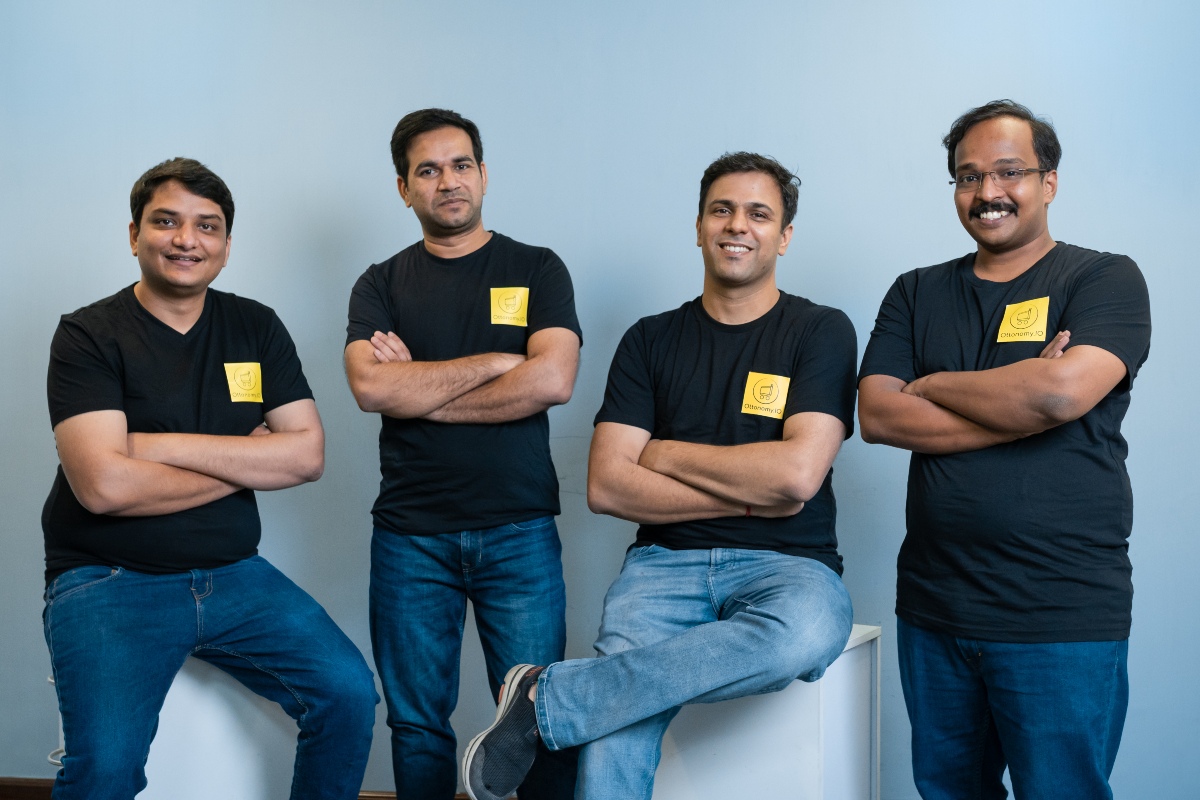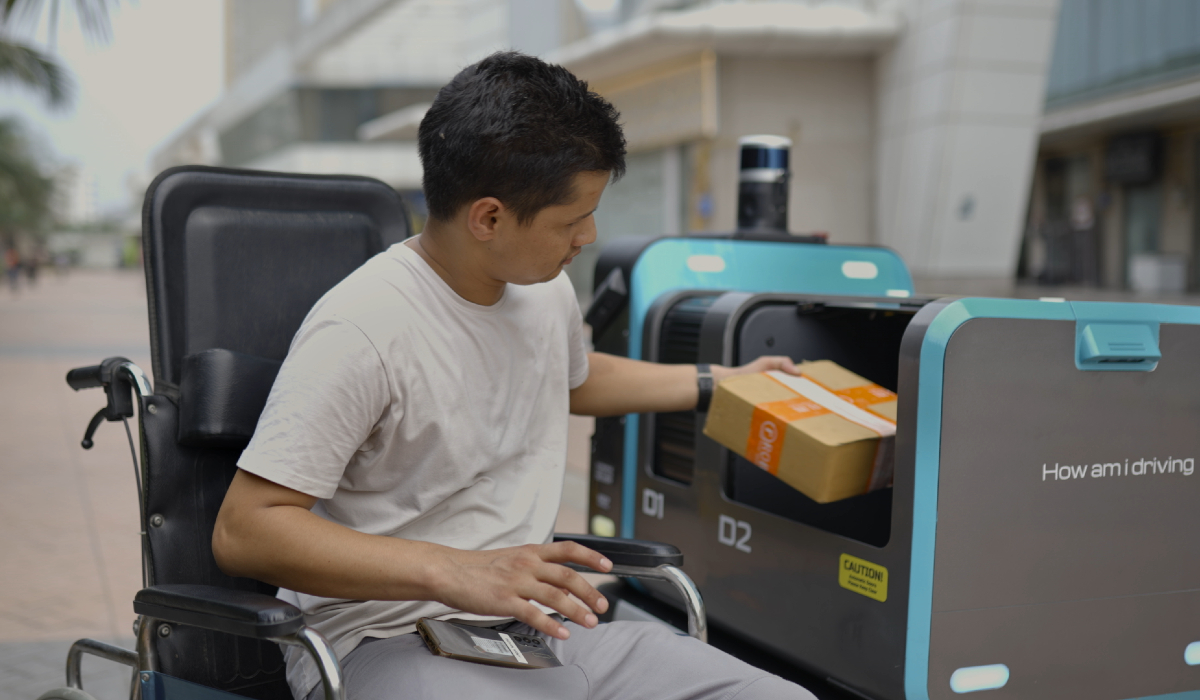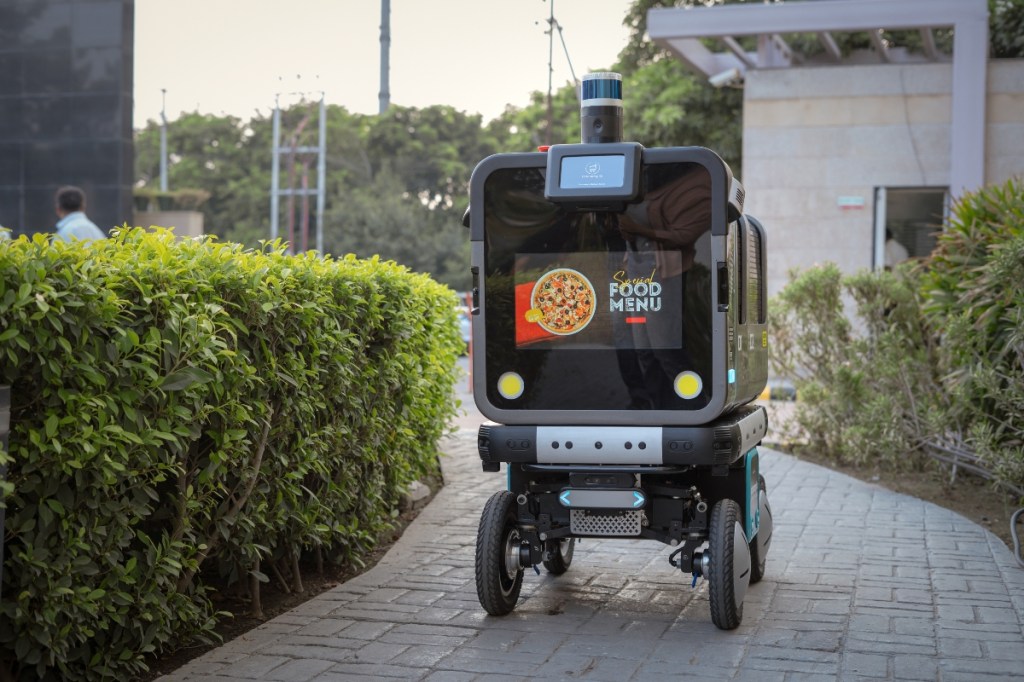Ottonomy.IO, a startup working on solving delivery problems using autonomous robots, has raised $3.3 million in a seed funding round as it looks to expand its market and deploy robots to existing customers.
Led by Bengaluru-based Pi Ventures, the latest funding round included participation from Connetic Ventures and Branded Hospitality Ventures. Sangeet Kumar, founder and chief executive of Uttar Pradesh-based Addverb Technologies, also joined the round.
Founded in late 2020 by Ritukar Vijay along with Pradyot Korupolu, Ashish Gupta and Hardik Sharma, New York-headquartered Ottonomy.IO develops robots that feature sensors, including 3D lidar sensors and cameras. The company, which employs about 25 people in the U.S. and India, also writes software and AI algorithms to power the sensors.
“One of the most important problems which we are trying to solve with these autonomous delivery robots is around labor shortages,” said Vijay, who serves as the chief executive of Ottonomy.IO, in an interaction with TechCrunch. He added that due to the labor shortages, there is a substantial increase in the hourly wages of laborers — to $18 to $45 per hour from $9 to $12 — in the U.S.
“So, that’s almost a 100% hike in hourly wages, making it very difficult for enterprise customers to provide the same services to the customers they were given earlier. And what happens at the end is that customers start paying more for deliveries.”
Ottonomy.IO’s autonomous robots help address the growing demand for last-mile deliveries and cater to emerging delivery requirements, including indoor and curbside deliveries. The latter is specifically a type of delivery in which the item is delivered to a place such as a parking lot — not directly to the customers’ home or office address.
“That too is very labor intensive because somebody has to bring items from a store to the curbside in the parking lot,” Vijay said.

The robots built by Ottonomy.IO use high information mapping of the serviceable delivery areas to navigate and reach the consumer delivery locations. Once they reach their destination, the robots require a unique QR code that the customer received at the time of their order to unlock the hold area and retrieve the order, the startup said.
Ottonomy.IO did some initial pilot rounds with its autonomous robots before bringing its latest model, Ottobot 2.0. This is an evolution from the early pilots and includes fully customizable modular cabins, increased customer access and directional mobility, including a crab mode that allows the robot to navigate sideways.
The proprietary robot designed by Ottonomy.IO offers better accessibility to customers, the startup claimed.
“Even a person in a wheelchair can actually access packages from the robot, which is very, very important,” Vijay said.

The executive also told TechCrunch that the robot has software capability of “no GPS dependence” and “works seamlessly” for both indoor and outdoor autonomous mobility.
According to Vijay, all these design elements and technological changes make Ottonomy.IO different from the competition that includes Starship, Kiwibot, Serve Robotics and Refraction AI, to name a few.
“If you see the other players, they’re either into indoor navigation or outdoor navigation. Given the capability of doing both opens multiple use cases for the company,” Roopan Aulakh, managing director, Pi Ventures, told TechCrunch.
Although the robots that Ottonomy.IO offers are developed in India, the company doesn’t consider the country its potential market.
“Our intent was not to go to solve a problem where it is not there,” said Vijay. “Otherwise, India could have been a market where grouped housing societies can still leverage autonomous deliveries, but the problem is not there because labor costs are still affordable,” he said.
Ottonomy.IO has already deployed its robots at the Cincinnati International Airport and is in talks with multiple airports in the U.S. and Europe to expand its business.
Vijay said that deploying the robots at airports was also a part of Ottonomy.IO’s go-to-market strategy to help them receive public attention.
The company said it was also working with top Fortune 500 companies in retail and restaurant industries across North America to widen its market, though it declined to identify them. Vijay said the startup is also working with a couple of fleet aggregators in Europe for last-mile deliveries. Ottonomy.IO also plans to expand to the Middle East and South America within this year, the executive said.
Ottonomy.IO plans to deploy the fresh funds to bring the robots to customers already on board — across categories including curbsides and last-mile deliveries of F&B, retail and e-commerce packages.
“Next three to four or five months are very heavy in terms of deployments for us,” Vijay said. The startup is also looking to expand its team. “From our thesis perspective, Ottonomy.IO is a deep tech startup solving a global problem,” said Aulakh. “Developing the product in India, even manufacturing it here and selling it globally, I think is a great story, and which is what really excites us about this company.”
Ottonomy.IO raised $1.6 million before the seed funding. Some of its early investors include former Apple employees, startup founders and angels from markets including Singapore, Europe, India, the Middle East and the U.S.































Comment